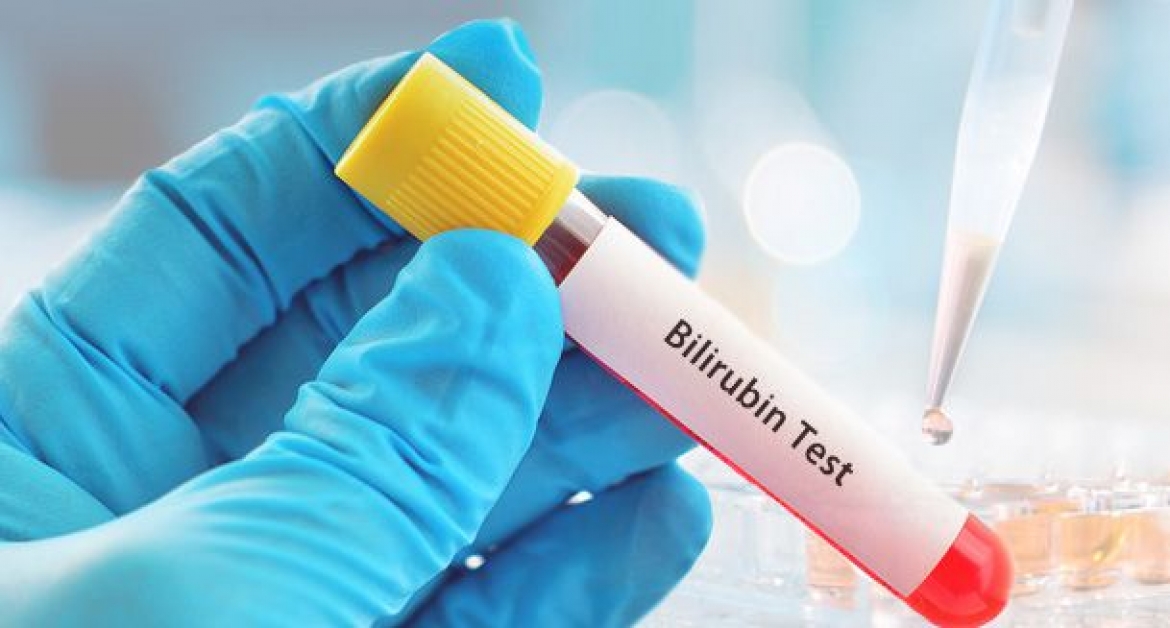Preventive Healthcare
Bilirubin Test: High Levels Vs. Low Levels, Normal Range, Types & Result
20655 Views
0

A bilirubin test is a blood test carried out to determine the bilirubin levels in your blood. Bilirubin is a pigment metabolised in the liver that helps assess the state of the liver and diagnose any liver-related conditions like anaemia, jaundice, or liver disease. Therefore, optimal bilirubin levels are considered a good diagnostic marker, while higher or lower levels of the same may indicate problems.
What is a Bilirubin Test?
Bilirubin is a yellowish-brown pigment produced when the red blood cells (RBCs) in the blood break down. Since some of the destruction of RBCs occurs in the liver, specifically the Kupffer cells, a lot of bilirubin is produced in the liver itself. The rest of the RBC breakdown occurs in the spleen, from where this pigment is sent to the liver. Thus, despite its area of origin, all the bilirubin pigment produced in the body eventually passes through the liver. Therefore, bilirubin levels provide direct insight into the state of the liver.
What is a Bilirubin Test Used For?
Once in the liver, bilirubin is metabolised so that it can be a part of bile. It gets excreted out of the body, most commonly through faeces, which obtain their colour from the presence of this pigment.
If your liver is healthy, it will easily metabolise this pigment to facilitate its excretion. If the liver is damaged or there is an excess of RBC breakdown, then bilirubin may leak into the bloodstream, where higher than-normal levels will be detected. If there is a higher concentration of bilirubin in your bloodstream than required, it can cause jaundice—a condition that causes yellowing of the skin and eyes.
Therefore, the bilirubin test can be used to detect the overall health of the liver, as well as specifically diagnose:
- Jaundice
- Liver disease
- Hepatitis
- Cirrhosis
- Gallbladder disease
- Liver blockages
- Bile duct blockages
- Hemolytic disorders (disorders that may be causing an excessive breakdown of RBCs)
- Hemolytic anaemia
A bilirubin test is also commonly used to diagnose jaundice in newborn babies. Many healthy babies at birth get jaundice since their livers are not developed enough to help metabolise the excess bilirubin. However, long-term jaundice in such babies may be a sign of liver disease – which may cause infant brain damage.
How is a Bilirubin Test Performed?
A bilirubin test measures the bilirubin levels in the blood. Hence, the blood sample is collected for this test. The entire experience is as routine as getting a normal blood test done.
Different Types of Bilirubin Tests
A bilirubin test measures total bilirubin levels. However, there can also be an assessment of separate bilirubin levels—unconjugated (indirect) and conjugated (direct).
- Indirect bilirubin refers to the bilirubin levels resulting from direct RBC breakdown.
- Direct bilirubin refers to the bilirubin levels present after metabolising in the liver.
What is the Normal Range for Bilirubin Levels?
Normal results and the range of the bilirubin test can vary. Typical results for the total bilirubin test are 1.2 milligrams per deciliter (mg/dL) for adults and usually 1 mg/dL for those under 18. The normal range for direct bilirubin should be less than 0.3 mg/dl.
In comparison, men have lower bilirubin levels than women. Therefore, the normal bilirubin range differs from testing agency to testing agency and their testing standards.
What Do Bilirubin Test Results Mean?
Lower bilirubin levels are typically not considered a problematic situation. They can be caused by strenuous exercise or by drugs like barbiturates, penicillin, NSAIDs (nonsteroidal anti-inflammatory drugs), or caffeine. On the other hand, higher bilirubin than normal can indicate liver problems like:
- Anaemia
- Cirrhosis
- Gilbert syndrome: an inherited condition that causes an inability of the liver to break down bilirubin
- Hepatitis
Higher bilirubin levels can also be caused due to a reaction to blood transfusions or drugs.
If you have a condition causing higher bilirubin, then the bilirubin may be excreted through the urine. Bilirubin in urine is not normal and indicates a liver condition.
Is a Bilirubin Test a Confirmatory Test?
While high bilirubin levels give significant insight into your liver health, they are not considered confirmatory tests for diagnosis. If your physician suspects that you might have a liver condition that is causing fluctuations in your bilirubin levels, they may recommend an additional set of tests, including:
- Liver function tests
- Liver protein tests
- Urinalysis tests
- Ultrasound
- Liver biopsy
Only after assessing the evidence from all these tests, will your physician make a confirmatory diagnosis and guide you with treatment for the same.
What to Do Before This Test?
Since this test involves a blood sample, your healthcare provider may request you to fast for a few hours before giving the blood sample. They will also mention any other instructions required.
Are There Any Risks to Getting a Bilirubin Test?
A bilirubin test is as easy as getting a normal blood test. There might be slight bruising at the site from which the blood sample is collected, but there is minimal risk involved with getting the bilirubin test.With Metropolis Healthcare, you can opt to get your blood sample taken at home for your ease and convenience. Therefore, if you want a bilirubin test done, contact us today!
 Home Visit
Home Visit Upload
Upload














1701259759.webp)









 WhatsApp
WhatsApp